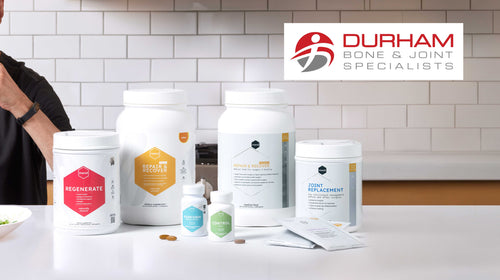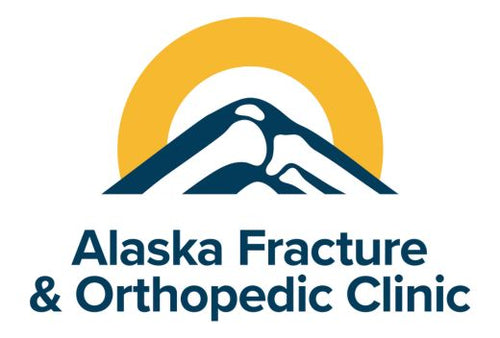This article is written by Gayemarie Brown – Advisor & Senior Strategist for MEND Nutrition Inc. *Please note that this is her experience on what worked and what didn’t. Gayemarie is NOT a medical professional.
It comes out of nowhere – one minute you may feel a mild, annoying tug or ache, resulting perhaps from routine surgery, athletic strain. Or maybe you merely moved the furniture aside to clean — or you came from a not particularly strenuous but fulfilling yoga class. You are aware of a tenderness; a feeling that something isn’t quite right. If it persists – you may seek physiotherapy, you might get a massage or if you are like me, you pop a couple of Advil with the attitude that comes after years of athletic activity, injuries and that voice that whispers in your ear “This too will pass”.
Then it happens. Overnight. Literally. You go to bed and by morning, an insidious pain takes over your shoulder, upper back, and arm. Once fully awake, you cannot move your arm without an absolutely debilitating pain that feels like your muscle is being torn apart from the inside. You wrack your brain… Did someone beat me in my sleep? Did I walk into a wall while I was cleaning? Did I truly tear something during yoga, the gym, gardening, mowing the lawn, lifting a small child, or cleaning?
And then, like every active, educated human, as the all consuming pain prevents your ability to sleep or move or concentrate on the most mundane task – you do what Advil, heating pads and creams cannot; you sit down and you Google. And what starts to appear in every search “Frozen Shoulder”
Frozen Shoulder, also known as adhesive capsulitis is a condition that often begins with stiffness, pain, and then at some point; stiffens or freezes resulting in complete loss of mobility in the affected joint. “Signs and symptoms typically begin gradually, worsen over time and then resolve, usually within one to three years.” [Mayo Clinic].
One to three years?!! This definitely got my attention, and so I dug further. Here’s what I learned: For the past decade, much of the research determined that the affected parties were often male (which I am not), diabetic (which I am not), and significantly overweight or recovering from surgery (nope & nope). So, I persisted and after reading inconclusive and largely unhelpful information from respected research journals and multiple hospital sites – I found myself (please don’t judge) on Facebook. And, alas I found my people.
Facebook has not 1, but 2 major Frozen Shoulder communities both of which have thousands of participants from around the world, are well moderated, and the community includes orthopedic surgeons, physiotherapists, chiropractors. Yes, every now and then you also read a rare, but highly entertaining, post attracting people that swear by crystals and chants, but primarily the themes that emerge are as follows:
- It may or may not be caused from a serious accident or prolonged immobility from surgery
- The people suffering from FS are overwhelmingly female, relatively fit, and between 40-60
- The condition is insanely painful, even for people who normally think of themselves as tough cookies – it is an insidious, all consuming pain
- It seems to happen almost overnight with very little warning
- In the early stages painkillers, cortisone shots, and physio do very little
- There is an emerging consensus among professionals and patients alike that the condition is still a mystery
- There is no “quick fix”
The raging debate amongst the FS community is as follows:
- To receive Cortisone or other injections or not
- Physio or not
- Massage or not
- Heat or icing
- Focusing on nutrition – especially the consumption of turmeric, green tea & Omega-3
- Anti-inflammatories, painkillers, prescription medication or over the counter
The one thing that most professionals and FS patients agree on is that inflammation exacerbates the pain and muscle spasms or in the vernacular of most of my new FS friends; “the zingers”. The zingers, attributed to nerve inflammation, stab and tear through your shoulder and arm, creating sleep disruption and making it impossible to do everything from putting your hair in a ponytail, to pulling on a shirt/dress or putting on a bra.
There are Three Stages of a Frozen Shoulder
- The Freezing Stage
- The Frozen Stage
- The Thawing Stage
The Freezing Stage
This stage is BY FAR the worst of the three stages and the treatment during this stage is also the most controversial. After many sleepless nights, more pillows than I have ever used during all three of my pregnancies, and some PT visits (it is important to note that I had to stop PT due to COVID as this was early March 2020) – I simply stopped fighting. This by the way is especially difficult for anyone, like me, who has been extremely active and athletic for most of their life.
Somewhere during my third week, extreme pain, sleep deprivation, and whilst reading posts on the FB Frozen shoulder group at 3 am, I noticed a theme running through the group, especially those for whom this was a second round with FS and were in the “Freezing Stage”. And it was this – don’t fight it, don’t try too much during the freezing stage – most treatments will simply aggravate or make it worse.
So I did just that. I stopped fighting it, stopped trying to even use my arm for even basic tasks, accepted that weights, yoga, and even running were aggravating the pain. And things began to get better.
I will say the best thing I did was focus on taking anti-inflammatory products daily – a combination of Advil & MEND Repair & Recover, which is, in one scoop concentrated nutrition and anti-inflammation (with a focus on turmeric, glutamine, leucine, and vitamin A, in addition to a plethora of other ingredients formulated to fight inflammation and soft tissue healing).
I kept a journal and at week 4 after doing very little and taking anti-inflammatory products, the pain subsided and my ability to sleep through the night gradually returned. For exercise, I simply walked. For mental health, I meditated and journalled.
Acceptance, focus on nutrition, and anti-inflammatory protocol were my friends.
The Frozen Stage
Hallelujah! Thanks to my peeps on the FS Facebook group (strength in numbers), I came to the conclusion that with anti-inflammatory protocol, rest, and doing nothing to aggravate your muscles and nerve endings – it appears that one might reach the Frozen Stage a little sooner. Once in the Frozen Stage, the pain subsides and you are, as the label suggests; “frozen”. The descriptor is apropos – for me, it meant my arm was immobilized – I could not lift my arm higher than my lower rib cage or to extend out to the side. Reaching for anything with the affected arm, zipping dresses, putting on t-shirts, and certainly sports bras were a bad comedic routine – as the pain subsided, my sense of humor at least returned. I maintained my anti-inflammatory & MEND Repair & Recover protocol each morning and began crawling (literally) back into a slow routine.
The Thawing Stage
Healing and recovery. Well if COVID and 2020 have taught us anything, it’s to expect the unexpected and be patient as $#%@. And so, this is how I am choosing to view my thawing journey. I am 7 months in now, and doing modified yoga, running slowly, and trying to rebuild some muscle in my wobbly arm/shoulder. I am, at heart, an optimist so I figure another year will see me back into full mobility, ski season, and maybe even fit in a handstand or two!
Though, many FS patients take 2 to 3 years to return to full mobility, I seem to be making better than average progress.
A few last words
Frozen shoulder remains very much a mystery, but the community is growing. The more women are put in the forefront of medical nutrition and scientific research, the faster we can figure out what really causes this condition.
I do suggest spending time with a PT or Ortho who has deep experience treating women with FS and figure out the right protocol for you. Some people have found relief from cortisone shots, PT, and surgery. I encourage you to read up on these debates yourself. And if you are interested in the medical science behind the products that helped me, you can find it on mend.me. I remain focused on nutrition and am mindful of consuming both MEND Repair & Recover and MEND Regenerate.
Do be gentle with yourself – this is a journey – self care and love will go a long way. Take baby steps. As someone who has run over 6 marathons, 11 half-marathons, 4 triathlons, and participated in cross training events with broken toes, fractured ribs, and torn calf (not recommended!!) – doing nothing felt as foreign as agreeing to become a space traveler to Mars. But perhaps that is a life lesson in itself. Through meditation, doing nothing, and joining the Frozen Shoulder community, I have discovered self-love, long-walks, and audio books – silver lining? I like to think so.



